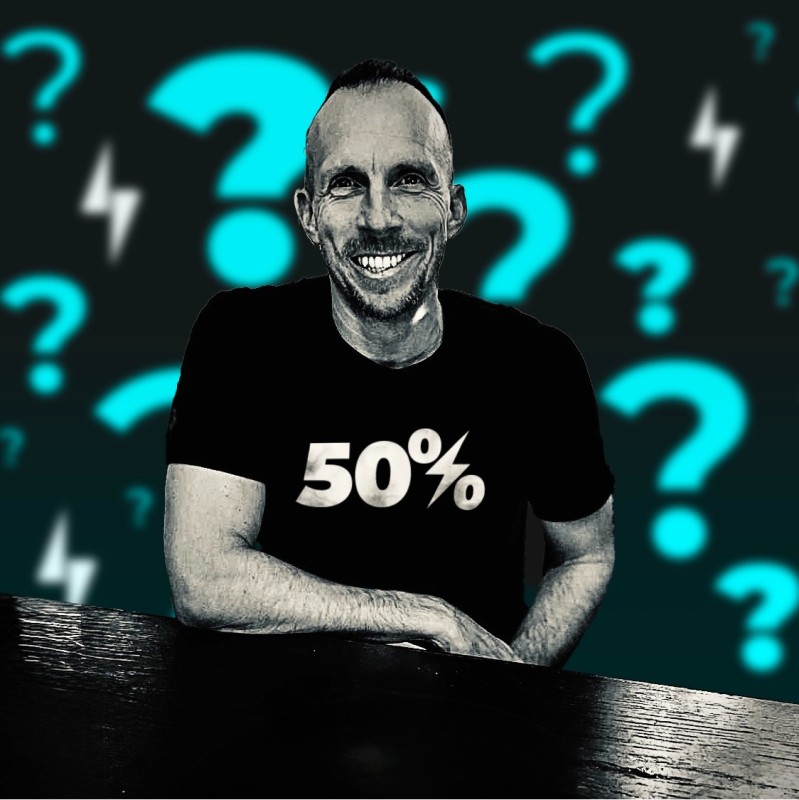Episode 8 with Dan Caesar: Fake News, Real Cars: Fighting EV Misinformation Head-On
Auto Futurecast is available on
The electric vehicle industry is experiencing unprecedented transformation, with new challenges and opportunities emerging at every turn. In a recent conversation on the Auto Futurecast podcast, Dan Caesar, CEO of Fully Charged, shared valuable insights about the current state of EV adoption, consumer behaviour, and the competitive landscape reshaping automotive retail.
From misinformation battles to the rise of Chinese manufacturers, Dan observations paint a picture of an industry at a critical inflection point. His perspective, drawn from nearly a decade of building the Fully Charged brand and engaging directly with consumers through events and content, offers essential understanding for anyone navigating this evolving market.
This episode explores the realities facing both manufacturers and consumers as the automotive world transitions from combustion to electric power.
The Misinformation Challenge
Dan highlighted a concerning trend: misinformation about electric vehicles has intensified significantly in recent years. "I would say it's as bad now as it has ever been," he noted, pointing to political uncertainty in both the US and UK as catalysts for increased negative messaging from what he termed "bad actors."
This misinformation campaign creates genuine challenges for the industry, particularly as it moves beyond early adopters to mainstream consumers who require more education and reassurance about EV technology.
The Fully Charged team has responded by launching Electric Vehicles UK, a lobbying group designed to influence politicians, press, and purchasers whilst countering false narratives with factual information.
Market Consolidation and Competition
The competitive landscape has dramatically shifted, with Dan revealing that the UK market has expanded from approximately 40 competing brands in 2019 to closer to 70 today. This explosive growth isn't sustainable long-term, leading to what Caesar described as "a consequential game of musical chairs" where not every brand will survive.
Chinese manufacturers are playing an increasingly prominent role in this competition. Caesar's recent visit to the Shanghai Motor Show revealed a level of collaborative determination he found "extraordinary to watch," with hundreds of brands backed by fewer parent companies all working towards market dominance.
Particularly noteworthy is the strategic approach of Chinese brands, which are leveraging their domestic scale to build manufacturing capacity that must find global outlets. This has led to aggressive expansion across markets, with different brands testing waters in different regions—Australia serving as a common testing ground for right-hand-drive markets.
Consumer Behaviour and Buying Patterns
Perhaps most importantly, Caesar identified a fundamental shift in consumer behaviour. EV buyers represent a distinctly different demographic from traditional car buyers, requiring automotive retailers to abandon the idea of consumers as "one single monolithic block."
The data reveals fascinating patterns:
· EV buyers are more likely to be found on LinkedIn rather than Facebook
· They consume different media, favouring YouTube and Netflix over traditional television
· They tend to reside in different geographical and political areas
· They require different information sources and decision-making processes
YouTube has emerged as particularly influential in the car-buying journey, serving as "the test drive before the test drive." This shift has prompted Fully Charged to complement their digital content with physical events where consumers can experience multiple brands in a single location.
The Reality of EV Ownership
Caesar addressed the persistent gap between perception and reality in EV ownership, particularly around charging infrastructure. Despite doing 25,000-30,000 miles annually in an EV, he only needs to use public charging networks once per month, typically charging at home once or twice weekly.
This disconnect between expectation and reality extends to technical specifications, where Caesar advocates for clearer industry communication. He supports using real-world range figures rather than official testing numbers and calls for more transparent charging speed specifications to avoid consumer disappointment and mistrust.
Industry Transformation and Opportunities
The conversation revealed several emerging opportunities within the EV space. Caesar highlighted recent developments in Utrecht, Netherlands, where 500 Renault vehicles are now generating income through vehicle-to-grid technology—a fundamental shift from traditional automotive business models.
Battery technology continues advancing rapidly, with LFP (Lithium Iron Phosphate) becoming the predominant chemistry due to cost advantages, whilst sodium-ion batteries promise even greater affordability in the future.
Market Outlook and Strategic Implications
Despite short-term volatility in sales figures, Caesar maintains confidence that the tipping point for EV adoption has passed. The key for automotive retailers lies in understanding and adapting to the changing consumer landscape rather than treating EV customers as identical to traditional car buyers.
The conversation suggests that successful navigation of this transition requires:
· Recognition of distinct EV consumer segments
· Investment in digital marketing and targeting capabilities
· Understanding of new media consumption patterns
· Preparation for intensified competition from global manufacturers
· Focus on education and transparent communication
Looking Forward
Caesar's insights reveal an industry in the midst of fundamental transformation. Whilst challenges around misinformation, competition, and consumer education persist, the underlying technology continues improving whilst costs decrease.
The next five to ten years will prove crucial for automotive brands, with market consolidation likely and competitive pressures intensifying. Success will depend on understanding the new consumer landscape, embracing digital-first approaches, and maintaining focus on the superior technology and economics that electric vehicles increasingly offer.
For automotive professionals, Caesar's observations serve as both warning and opportunity: the transformation is accelerating, consumer behaviour is shifting, and those who adapt quickly to these new realities will be best positioned for success in the electric future.
Follow our podcast channels to stay up to date with the latest insights and trends in the automotive industry.
Guests
Discover guests from our podcast episodes.

Auto Futurecast explores the trends and technologies transforming the automotive industry. Hosted by Chris Kirby of Tomorrow’s Journey, it features industry leaders tackling key issues shaping mobility.
Explore Our Latest Insights
Stay updated with our featured articles and blogs.









